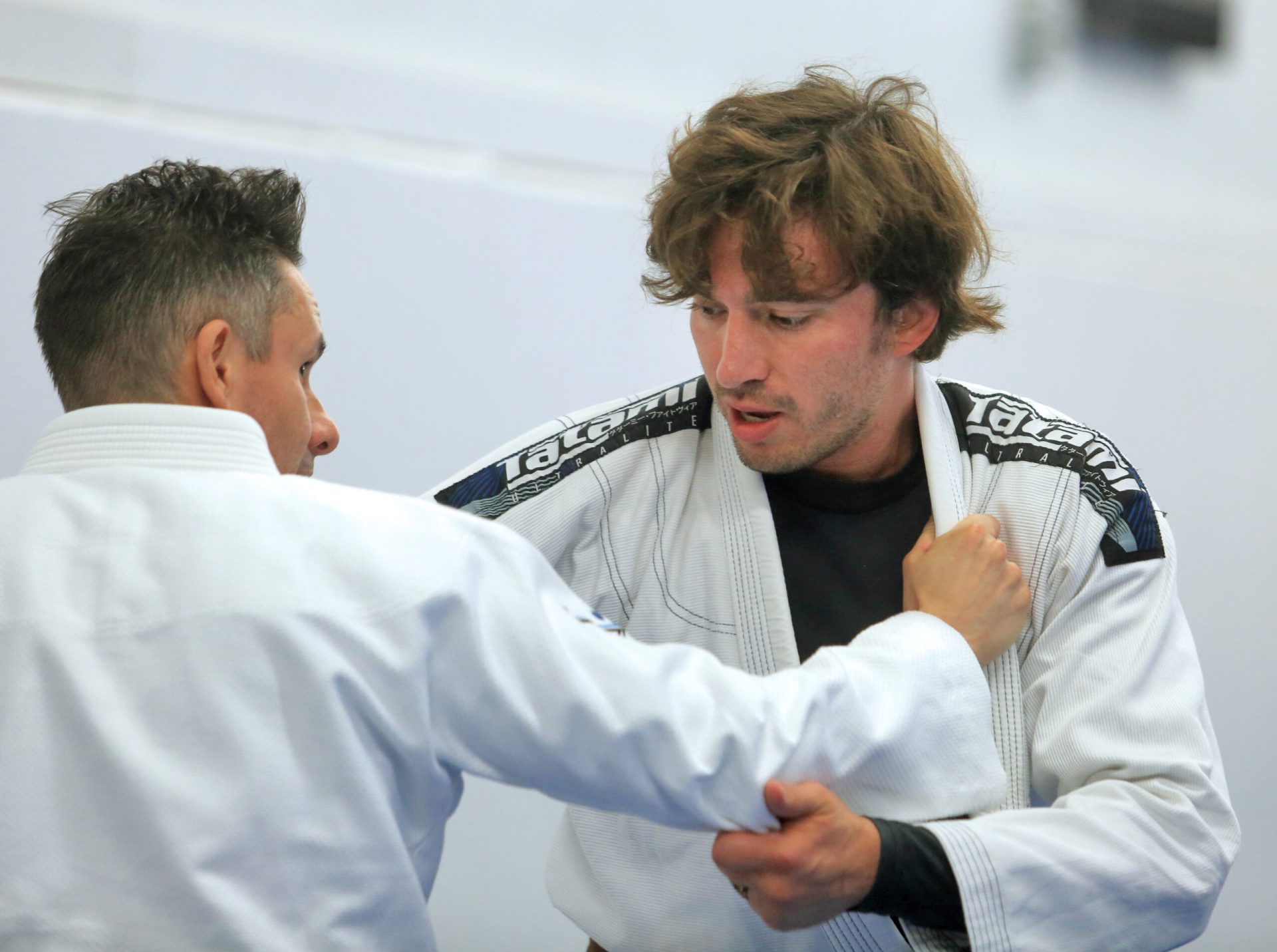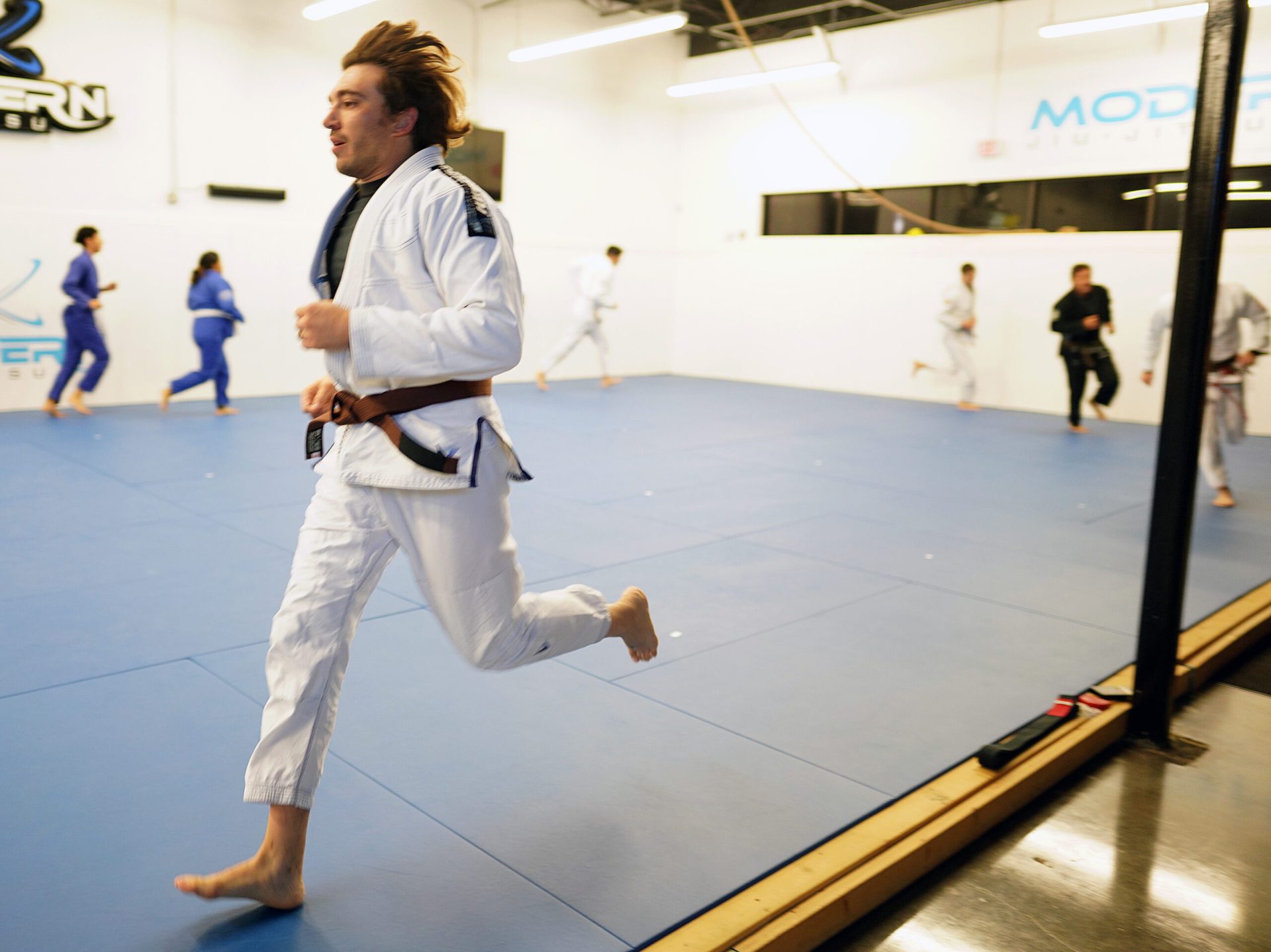Dr. Jeffrey Skubic is a trauma surgeon at DHR Health and trains six times a week in a jiujitsu class.
But Skubic is not the only member of the DHR surgical staff participating in jiujitsu, which is a Japanese system of unarmed combat and physical training.
The academy, Modern Jiu-Jitsu, has a morning class in which the majority of the participants are DHR Health physicians.
“There are about five or six of us from the hospital that train at the same academy. Half of us have been doing it for a long time and the other half got involved because they heard some of us doing it and started training there,” Skubic said.

Martial arts has been a part of Skubic’s routine for about 16 years. When he entered his surgical residency program he realized the effects it had on his life.
“I was into wrestling, jiujitsu and boxing when I was younger and then I continued it throughout medical school,” he said. “When I started residency, my residency program director told me ‘you better quit that because there is no way you are going to be able to keep up those kinds of sports while you’re a surgery resident.’
“I quit, I stopped doing all of it and dedicated everything to surgery and nothing else. Absolutely nothing else. After three months I was miserable,” the doctor recalled. “One day I just said to myself, I don’t care what he said, I don’t care what anybody says I’m going to do what I want to do to be happy and to be sane. … I’m not going to give up my sport.”
From that day on Skubic decided that he would do whatever it took to continue in his sport.

In order to balance a combat sport and a career, he reduced the amount of time he slept.
“I made the conscious decision to sacrifice sleep in order to continue my sport and still be a surgical resident. I never quit again ever since then. Even though I was much more tired after that, I was much happier,” Skubic said.
Although he slept for shorter periods, the outcome and his overall mental health benefited from his dedication to martial arts.
“As a surgeon, we have so many burdens and stressors on us, and it’s constant. We are attached to our patients, we can get called anytime even when we’re not on call, we might receive a phone call from one of our patients that’s at home,” Skubic explained. “For me, the best way to disconnect is when you are doing something so intense that it occupies every cell of your brain to be able to focus … something that is so intense like that is actually stress relieving because it forces you to stop thinking about the other stuff.”
Not only does combat training improve his mental health, but it has also helped him strengthen his skills as a surgeon.
There are a set of skills that are important to learn when practicing martial arts. According to Skubic, those skills have proven to be beneficial when encountering extreme surgical cases
“When you get put into these uncomfortable situations so often such as boxing or anything it forces you to become really good at solving away and to remain calm. It (jiujitsu) teaches you to be calm even in the most stressful situations,” he explained. “Remaining calm under stressful situations is one of the best talents or skills for a surgeon to have. The surgeon must remain a pillar of calm because everyone is going to look to us; and if we remain calm we can control the situation and direct what is going to happen to save that patient.”








